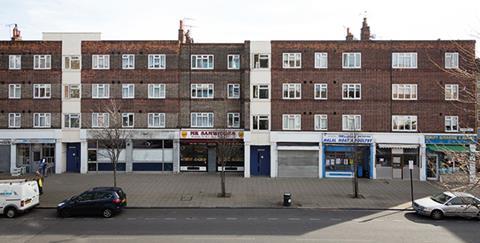Olivia Harris has completed her first 12 months as the chief executive of Dolphin Living, a charitable housing organisation that provides affordable rental homes in Westminster and surrounding boroughs.

Property Week sat down with her to find out what she has achieved so far and what her plans are for the next 12 months.
How has your first year in the role gone?
In a word, quickly. Over the past 12 months, there have been some pretty decisive shifts in the affordable housing landscape, not least in the political context. We’ve seen change following the general election and policy changes through the draft London Plan and in the aftermath of the Grenfell tragedy last summer.
Without a doubt the increased media and political emphasis on housing, and the recognition that the needs of workers on modest incomes are not being met by the market or existing social housing, have increased the prominence of what we are doing.
Keeping up with this rapidly changing agenda, as well as the myriad government policies and plans that influence and support what we do, has been both fascinating and time consuming.
Dolphin Living initiatives delivered or under way in the past 12 months include the successful launch of a retail charity bond, the completion of a significant development for us in Hammersmith and fully rolling out personalised rents across the New Era Estate.
What challenges have you faced and how have you overcome them?

One could argue that trying to provide affordable homes in one of the most expensive cities in the world is challenge enough. However, we’re continually looking for new opportunities and getting the message out there about what we do.
Build-to-rent providers find it difficult to compete on the open market for land and as Dolphin Living offers homes at below market rent it is even more challenging. We need to find partners who are focused on broader objectives than making the highest financial return.
We also have to try to build an understanding among policymakers and elected members of the need to deliver more rental homes across a broader range of incomes, to meet the needs of those priced out of the rental market, yet unable to access social housing.
Tell us about Dolphin’s new strategy…
Before becoming CEO, I worked with Dolphin for five years. We’ve always had an innovative approach to delivering genuinely affordable rental homes for working Londoners.
We’ve been very careful to retain this culture, while responding to where we are now and looking forward to where we want to be. Five years ago, we had less than 50 homes. Now we have over 600. While growth remains central to our strategy, we have rebalanced our focus towards our tenants and valuing our homes.
We have also taken the opportunity to reinforce and expand our emphasis on our role as a champion of intermediate rental housing. Compared with four or five years ago, the sector is much more receptive to this message.
What are you working on next?
We have developments at the design stage, are raising finance to fund future growth and are looking at how to improve some of our older homes. New opportunities are coming to us almost daily; another development will be completed this year; we’ve just received responses from a customer survey to analyse… and the list goes on.






























![Lot 2 - Allsop [May 2024]](https://d2bq2usf2vwncx.cloudfront.net/Pictures/380x253/4/8/5/1885485_lot2allsopmay2024_328328_crop.jpg)

No comments yet